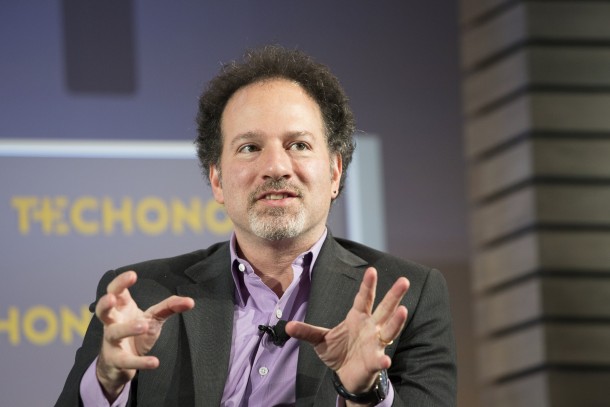
by Lev Tsitrin
I know it is unfair to generalize — after all, Mr. Zachary Karabell may be a mere outlier in the organization he founded, “The Progress Network”. And yet, if “birds of the feather flock together,” the opposite may be true too: those who flock together are “birds of the feather,” and his foolishness is indicative of that of his colleagues.
“The feather” of Mr. Karabell’s is obvious from his monumentally ignorant “guest essay” in the New York Times, “China Doesn’t Have to Be Our Next Great Enemy” that picks a bone with Biden’s China strategy perceived by Mr. Karabell as unnecessarily confrontational. “China [is no] threat to American prosperity and security, not unless you believe in every antagonistic word coming from Chinese officials, every war plan devised by its military,” Mr. Karabell intones in a siren voice. “It’s rhetoric over Taiwan has been little more than saber-rattling and appears restrained compared to how the United States has historically treated Latin America.” What comes out of China is mere “plans for its defense.”
So, why worry? “China is deeply intertwined with the U.S. and global economy. It holds more than a trillion dollars’ worth of American debt in the form of U.S. Treasury securities, benefits from the cumulative effect of U.S. investment in China and needs access to foreign markets. All of these realities shape its behavior just as much as the possibility of a future confrontation with the United States.”
Mr. Karabell’s credentials set in fine type below his essay reveal that he is “a former portfolio manager of the China-U. S. Growth Fund with Fred Alger Management,” That his policy suggestion reflects a conflict of interests between the interests of the US and of Mr. Karabell’s pocketbook is an obvious, but minor point. The major problem of his essay is how little he understands what he talks about: Communism. This, in fact, is an overwhelming problem with the whole of American engagement with China for the last thirty years: we simply refuse to see ideology as a driving factor in behavior of individuals and countries, China including. In line with Mr. Karabell’s sneering at “believing in every antagonistic word coming from Chinese officials,” America’s pragmatism fell victim to Chinese ideology of Communism, which we systemically refuse to take seriously.
And yet, Communist insistence that it is the ultimate truth is as strong as any religious feeling — in fact, it is grounded in the same religious assurance of knowing what is ultimately “true” that guides, for instance, the suicide bombers. Sure, China’ tactics for advancing Communism may be different from the Soviet one — China plans to buy the world rather than conquer it — but the strategic goal remains the same: world-wide Communism, as revealed in the Gospel of Marx/Mao. Where America saw its economic engagement with China as the opportunity to liberalize it through commerce, China also saw the opportunity — but an exactly the opposite one: the opportunity to turn America communist by buying it up piecemeal. Every Soviet schoolchild knew by heart Lenin’s great dictum — “the capitalist will sell us the very rope on which we will hang him.” That is exactly how China operates — though the likes of Mr. Karabell in business and government circles would rather not know: selling the noose is so profitable.
Nor can Mr. Karabell boast of logic. “China is deeply intertwined with the U.S. and global economy. […] Russia, by contrast, is constrained only by how far Mr. Putin is willing to go,” is how he contrasts the two countries. In this, he compares apples to oranges — country’s economic involvement is measured against its leaders’ expansionist calculus. If anything, the effect of the comparison is the exact opposite to Mr. Karabell’s intention: Russia was also fully integrated with the world — as witnessed by the long list of Western companies that decided to cut their losses and leave — and as further demonstrated by Europe’s inability to cut off Russia’s oil and gas, three months into the Ukraine war. As to how far Mr. Xi will be willing to go to “rejuvenate” China by grabbing Taiwan and giving it the blessings of Communism (as he did to Hong Kong), Mr. Putin is a good guide, too. He merely miscalculated the Ukrainian, and the world’s resistance. Is Mr. Xi beyond making a similar miscalculation?
Somehow, the New York Times just loves to publish goody-goody drivel — and undoubtedly, Mr. Karabell saw his essay as a golden opportunity to promote both himself, and his organization. The New York Times‘ megaphone worked — but it worked only to prove that Mr. Karabell is an ignoramus, and that his organization is likely a collection of similarly ignorant types. “The Progress Network” is really “The Brainless Network,” I suspect.
- Like
- Digg
- Del
- Tumblr
- VKontakte
- Buffer
- Love This
- Odnoklassniki
- Meneame
- Blogger
- Amazon
- Yahoo Mail
- Gmail
- AOL
- Newsvine
- HackerNews
- Evernote
- MySpace
- Mail.ru
- Viadeo
- Line
- Comments
- Yummly
- SMS
- Viber
- Telegram
- Subscribe
- Skype
- Facebook Messenger
- Kakao
- LiveJournal
- Yammer
- Edgar
- Fintel
- Mix
- Instapaper
- Copy Link






